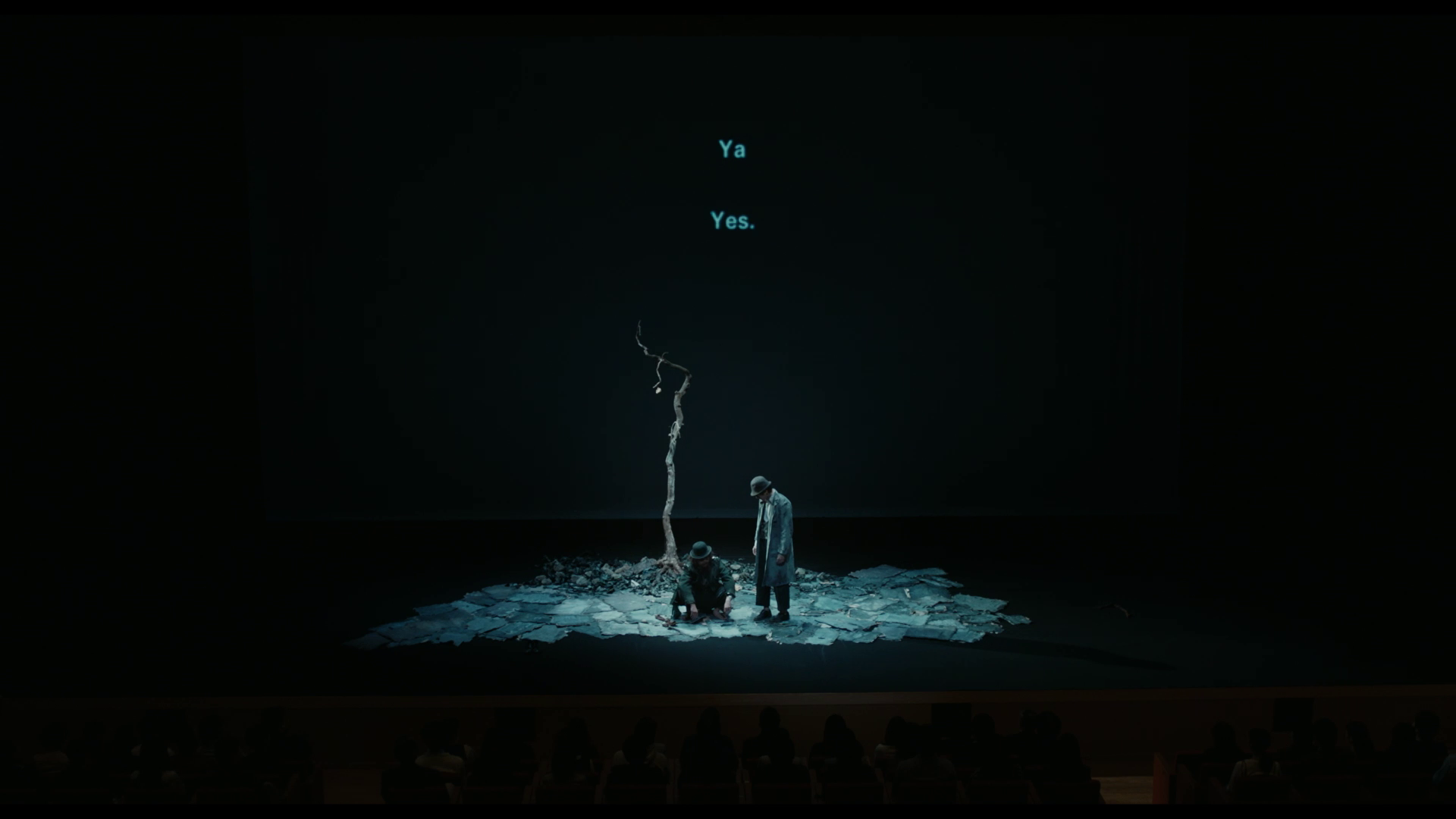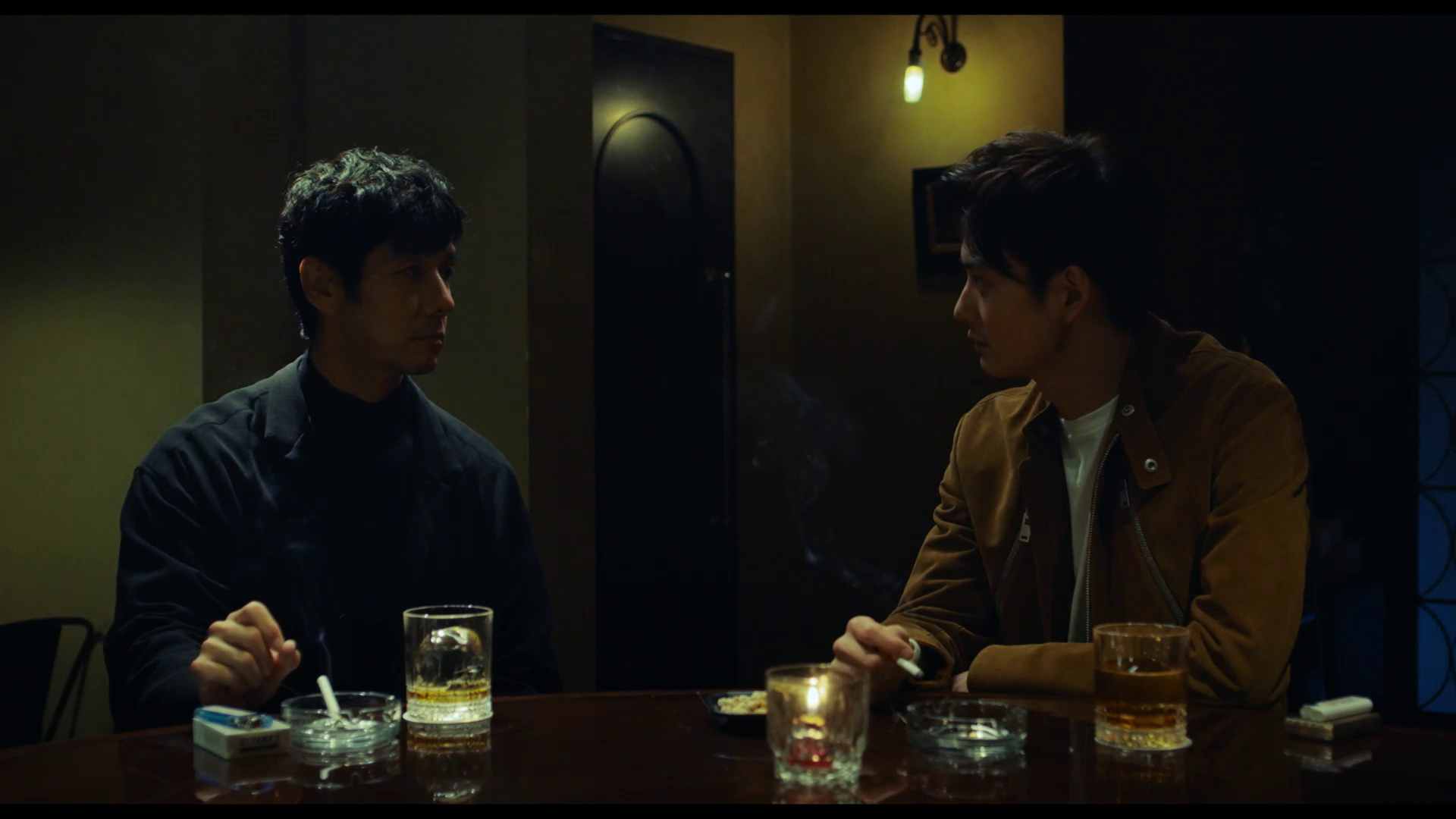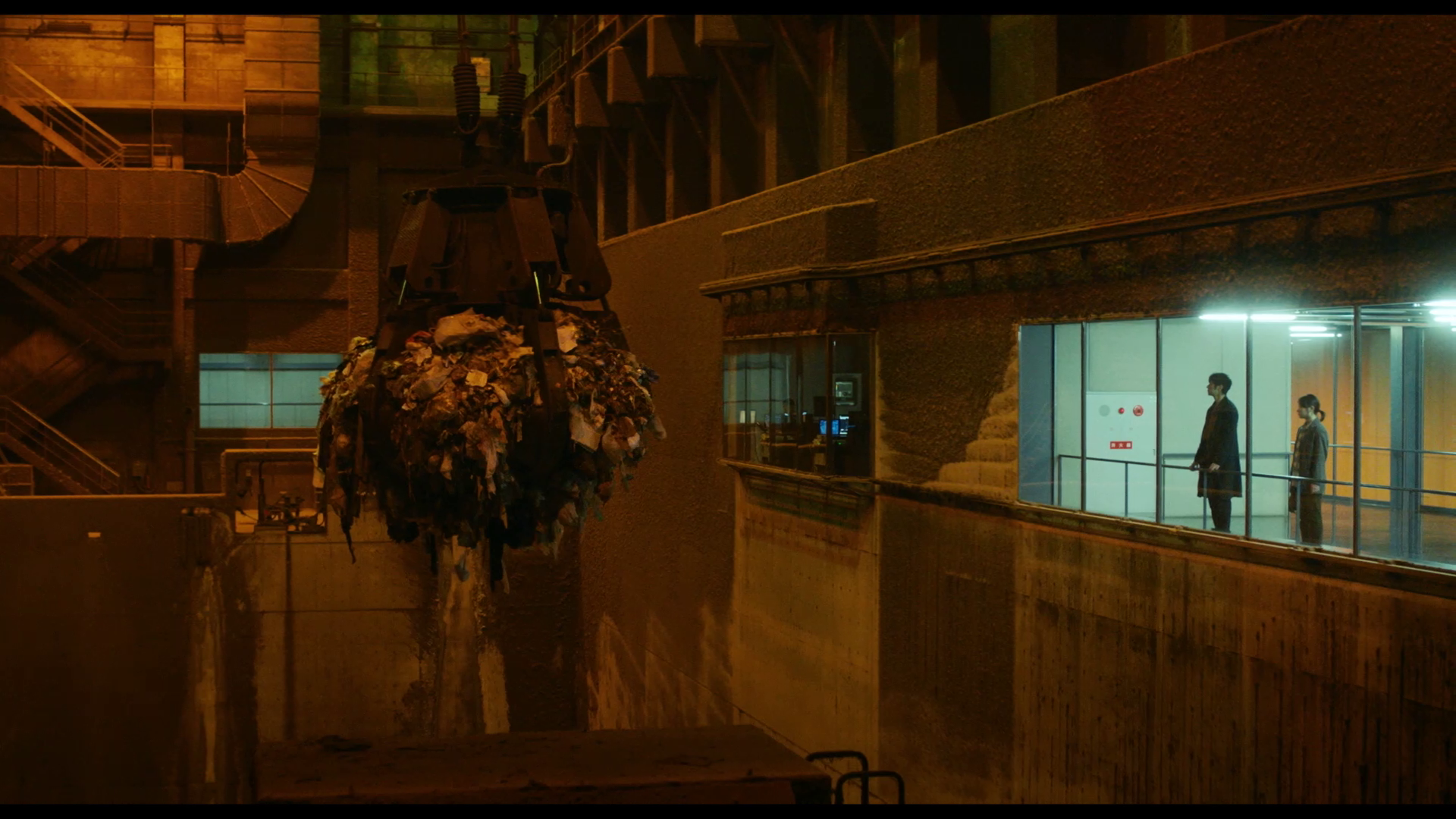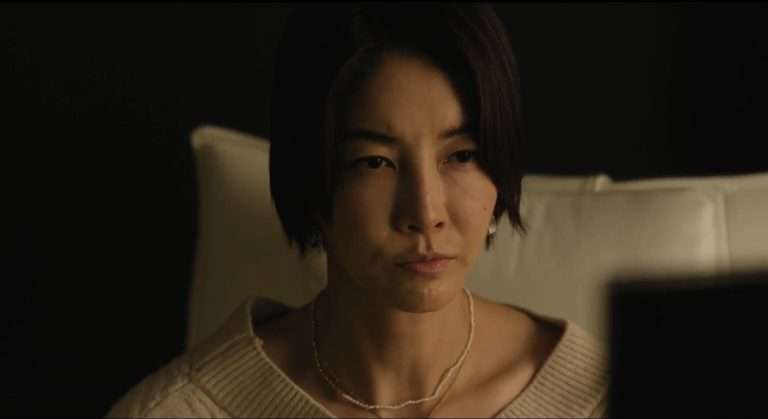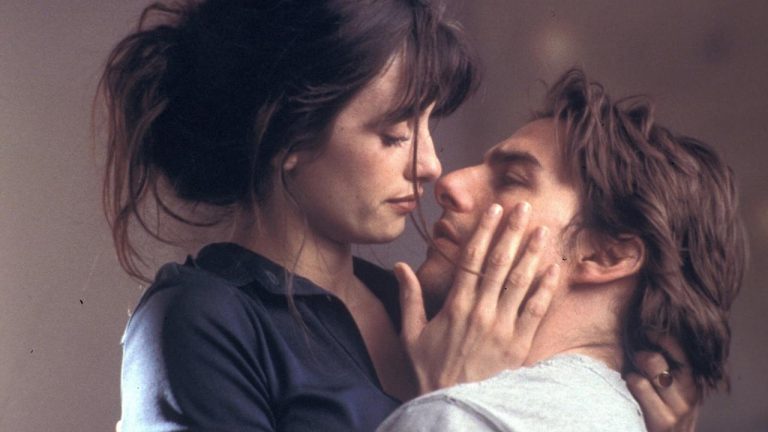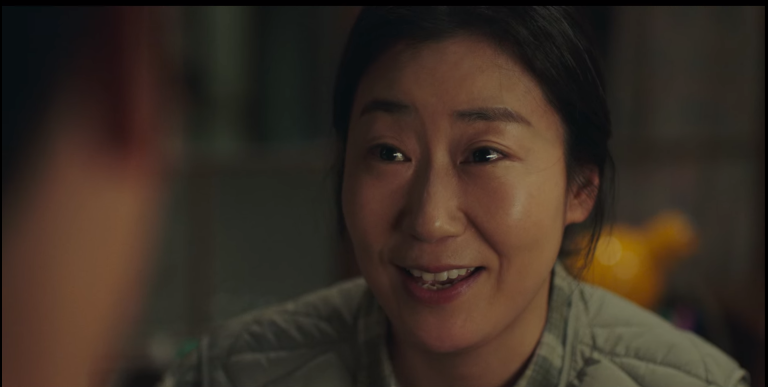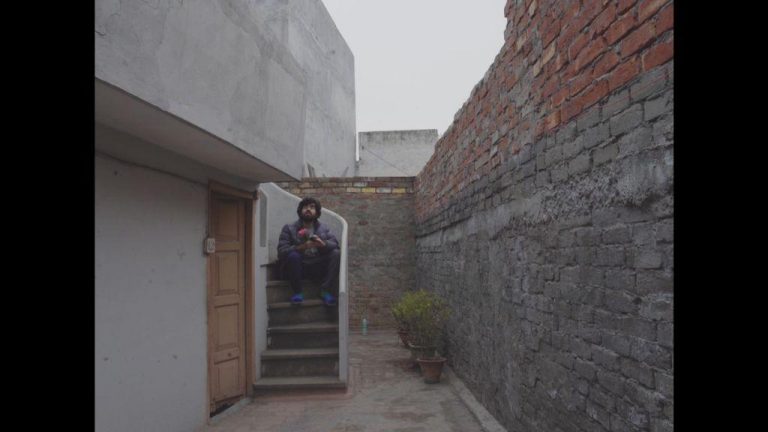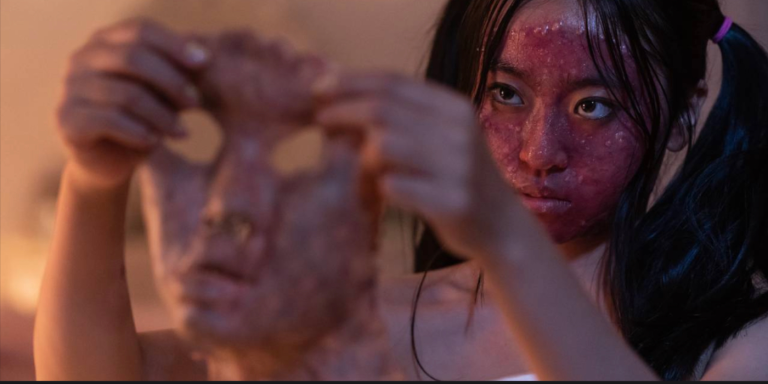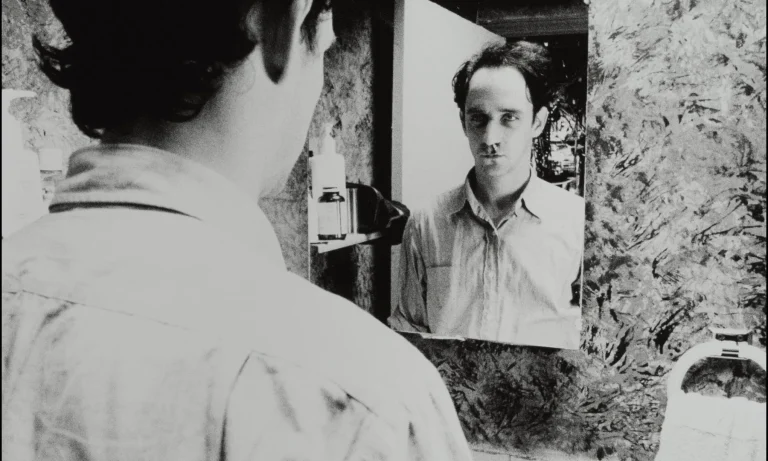Drive My Car Movie Ending Explained & Themes Analyzed: The world wouldn’t know of Japanese filmmaker Ryûsuke Hamaguchi if it wasn’t for the numerous accolades his latest film “Drive My Car” has been grabbing ever since its premiere at the 2021 Cannes Film Festival. While the film lost the esteemed Palme d’Or to Julia Ducournau’s tantalizing “Titane,” it did strike gold with a Best Screenplay Award at the festival.
A few months later and now an Academy Award-nominated film in 4 categories: Roping in a Best Picture, Best Director, Best International Feature Film, and Best Adapted Screenplay nomination, Drive My Car is not a film that is deemed to be forgotten anytime soon.
Adapted from Haruki Murakami’s short story of the same name from his 2014 collection “Men Without Women”, Hamaguchi’s film is almost 3 hours long. So, to fill in the gaps in the narrative with a feather band of genuine emotional warmth, the filmmaker also takes inspiration from other stories in Murakami’s anthology.
Essentially, a movie like Drive My Car is not a tough nut to crack. But, since you are already here, I am sure you want some of its gentle, mysterious beauty to be deciphered for you. Please note that this article is going to be full of spoilers that might ruin your experience, so be aware of what you are getting into.
Drive My Car Movie Synopsis & Summary:
Drive my Car is a film about Yûsuke Kafuku (Hidetoshi Nishijima) – a grieving theater director who has recently lost his wife Oto (Reika Kirishima) to sudden cerebral hemorrhage. 2 years have passed since Oto died, and when Yusuke first discovered that she was cheating on him.
Yusuke, who is a multilingual theater director, gets invited to do a residency at a theater festival in Hiroshima. The director is supposed to put on an ambitious recreating of the play Uncle Vanya by Anton Chekhov, and the entire process of casting and rehearsing forms the crux of this story.
Two other key characters serve as an important pillar in Drive My Car. The first of whom is Misaki Watari (Tôko Miura), – an often silent, 24-year-old Driver who is forced-assigned to chauffeur Yusuke around and back to his temporary residence that is a 1-hour drive away from the festival location. The second is Kôshi Takatsuki (Masaki Okada) – a young actor who has traveled all the way to Hiroshima after a recent scandal had left him freelancing, with Yusuke’s play as a sort of last resort for his jeopardized career.
There’s history between Takatsuki and Yusuke that is slowly uncovered; as Miura becomes a silent companion who accompanies Yusuke around as the duo find solace in each other’s past and the regrets that haunt them each day. As tensions build up between the actor and the director, wounds from the past reopen and submerge the driving duo with new revelations.
Drive My Car thus becomes a tender and melancholic way in which grief follows us around. Leading us to a wholly intimate and cathartic moment of acceptance where the reel and real dwell together and form newer meanings for those who can look through.
Related to Drive My Car Movie Explained – Parallel Mothers Movie Explained: Ending & Themes Analyzed
Why was Oto cheating on Yusuke?
From what we know by following through the narrative to the very end, Oto and Yusuke had a happy family, until they lost their daughter to pneumonia. It is not explicitly told but in one of the conversations that Yusuke has with Takatsuki, it comes up that Oto lost her ability to write and think of her screenplays when her daughter died.
It is evident that the loss and subsequent trauma had a deeper effect on Oto than it had on Yusuke. She went into depression and only after time passed, she got to know that she still had lots of stories in her head. The only thing is, they came out only when she had sex, post which, she did not remember them after she woke up.
While this doesn’t really have to be the reason for her cheating on Kafuku, there can be a slight desire and curiosity to know how the stories changed with a different partner. As far as her cheating is concerned, it can be attributed to the fact that she is a deeply flawed and broken person like most of us. A broken person is always searching for things that can fix them. This is why she might have taken the step of finding some kind of answer and finality in the much younger Takatsuki.
Why didn’t Yusuke confront Oto about her cheating on him?
Yusuke first realizes that Oto is cheating on him when one of his flights gets canceled unexpectedly, and he has to return home. When he reaches home and unlocks the door with his key, he hears noises coming out of his living room.
He sneakily moves ahead and finds his wife in mid-coitus with young actor Takatskuki. However, instead of confronting the two of them then and there, Yusuke slowly comes out from the house, gets in his car, and drives off. He then takes a room in a hotel in town and lies to Oto about reaching his destination by being totally casual about his day.
Now, I personally think Yusuke’s reasons for not confronting has to do with his calm, laid-back personality. He isn’t one of those people who instantly react or get agitated with something wrong in their lives. However, we can feel that he is leading up to confront his wife with some kind of unseen frustration building within him. The accident and the subsequent problem with his eyesight can be seen as a metaphorical manifestation of this heaviness that he is feeling.
The fact that his wife dies of cerebral hemorrhage moments before the two of them were supposed to have ‘a talk,’ is what moves Drive My Car into a corner that can discuss the slow, rotting effects of not talking to someone when one should have, and the unseen weight of guilt that hands around our necks like an Albatross.
Similar to Drive My Car Movie Explained – Kimi Movie Explained: Ending, Themes & Morality of Technology Analysed
What scandal wrecked Takatsuki’s career and left him with bloated impulsive angst?
Takatsuki’s character has been portrayed as someone who is eager to engage with people. The first time we see him meeting Yusuke, he is accompanied by Oto who introduces him as a young, promising actor.
The next time we see him is during the sexual encounter with Oto; even though that doesn’t leave any sort of impact on the viewer, we understand that the young man has an affinity for the opposite sex and sees them as some sort to foray or an adventure.
The same is seen again when he auditions with a co-star. Even though they don’t share the same dialect, we know that there is something going on between them. This in turn tells us that he is distracted and impulsive in his decisions.
All through the second and third leg of the film, we also see him get extremely angry at bystanders who are clicking his picture. Only later do we get to know that he is now working as a freelancer because he was removed from major acting gigs because of an accusation that he had sexual relationships with a minor.
The third act, particularly the time before the final stage rendition of Uncle Vanya, shows that he is captured by the local police for having previously assaulted a person who was clicking his pictures. The person that he violently assaulted is dead and he is taken into custody, leaving Yusuke to take up the titular role that he had been avoiding till now.
Why didn’t Yusuke cast himself as Uncle Vanya in the play that he is directing?
The biggest question that looms in the minds of the festival organizers and other actors who are finally cast in the play is why Yusuke chose to not play the title character even though he is well versed in it.
We see him practicing lines from the play in his tranquil moments while driving or sitting in his car, but when it comes to acting the part out, Yusuke chooses Takatsuki over himself. The answer to this question is pretty simple. We hear Yusuke mentioning that the story of Uncle Vanya has an existential effect on the person who is enacting them. Since, the story, firstly due to his major loss in life and secondly due to his regrets feels eerily familiar, he makes the decision to let Yusuke take the burden of the text with him.
It is not an act of revenge per se, but it definitely feels like an implication.
Related to Drive My Car Movie Explained – The Innocents (2021) Movie Explained: Ending, Themes, & Subversion Of Childhood Innocence Analyzed
Drive My Car Movie Themes Explained:
An onward journey to look within:
Much of Drive My Car takes place either in the front or the back seat of Yusuke’s beloved Red Saab 900. Two of the people who drive the car are poles apart in characteristic traits, and yet, their journeys are similar.
All through the film, director Ryusuke Hamaguchi tries to slowly get us to know them better. Both Misaki and Yusuke have suffered a loss of a loved one in their life. And in trying to distract themselves from the tragedy they have kept themselves busy with something or the other. For Misaki, it’s driving from one place to another, and for Yusuke, it’s finding refuge in his art.
So, the onward journey that they take together boils down to the moment of complete catharsis when the two of them drive to Misaki’s old home. They look within and realize that they have been so busy trying to understand others that they haven’t paid much heed to what’s going on inside them.
The unseen weight of guilt and regret:
Both Misaki and Yusuke also carry the tumultuous weight of guilt and regret on their shoulders. They both blame themselves for the loss they have experienced in their lives, and because of that, they have felt like empty shells that can’t be filled up by any kind of destruction.
Drive My Car finds them facing their guilt and regret to sort of recover from their flawed and broken existence. Misaki’s regret comes from not saving her mother when their home gets destroyed by a landslide. She also talks about her mother’s dual personality and how she connected to only one of them who was closer to her age and understood her. The other was an abusive mother who couldn’t fathom the misery her life had to offer.
Similarly, Yusuke kind of blames himself for the death of his wife. He did not resolve things with her, especially the idea of her cheating on him were all left in a flux that did not reach a proper conclusion. This left him with the guilt of not confronting and making peace with her before her accidental death.
Art as a form of catharsis, shield, and escape:
More than anything art is an escape. An escape from the reality that we find hard to comprehend or live through. In Drive My Car, Yusuke, and in some sort of metaphysical way director Ryusuke Hamaguchi use it as a mode, a vessel to permeate their own insecurities and guilt in life.
Am not sure if it stands for Hamaguchi, but the absence in his character’s life is filled through his constant guilt to relate it to the play that he is putting on. Uncle Vanya and Waiting for Godot are two pieces of literature that form the core of this narrative and carry it forward. In some way, the loss and void that Yusuke feels are constantly filled through by him relating to the miseries that the characters faced in the play.
Hence, he uses this form of art and tries to shield himself from the trauma and guilt that he is trying to repress. We see that Yusuke is putting on plays that are multilingual in nature. The fact that all these languages share a key connection that still makes them feel, do, and appreciate art, in the same way, allows art to be cathartic and at times moving.
In some way, director Hamaguchi is also criticizing the idea of people not watching ‘foreign language films’ because they are not in a dialect they speak. In turn, making a case for why they still deserve to have a place in their lives, bedding along with their own personal loss and victories.
Related to Drive My Car Movie Explained – Nightmare Alley Movie Explained: Ending & Themes Analysed
Drive My Car Ending Explained:
After Yusuke and Misaki drive to Misaki’s old home and have their time to finally face their guilt, the film shows us Yusuke taking up the empty role of Uncle Vanya and leading it towards a rousing climax. We are not left with the appreciation it gets from the audience or how its success shapes his future. Instead, the last sequence is set in Korea and from the looks of it, is set in the current COVID-era.
We see Misaki buying groceries at a local supermarket before stepping out to reach Yusuke’s Red Saab 900. Yusuke is nowhere to be seen, but on the backseat of the car, we see a dog who seems to be Misaki’s companion now.
Now, there can be two ways to see and interpret this ending.
One, we can assume that Yusuke lost his eyesight due to his problem, and Misaki was given the car, or second, Yusuke gifted Misaki the car because she once told him that she liked it a lot.
I would like to assume that the second is a bigger possibility since gifting the car to Misaki would mean that Yusuke finally moved on from his past as the car was the only thing left in his life that reminded him of it.
Similarly, when Misaki removes the mask in the car towards the end, we see that the scar that she had on her face is gone. It can be taken as a sign that she finally let go of that scar and her past too and moved ahead in life.
The dog also looks like the dog she saw in the couple’s home and loved, signifying that she has moved on in life from her empty, soulless existence. This can be seen from the big smile she has on her face as she drives off.

